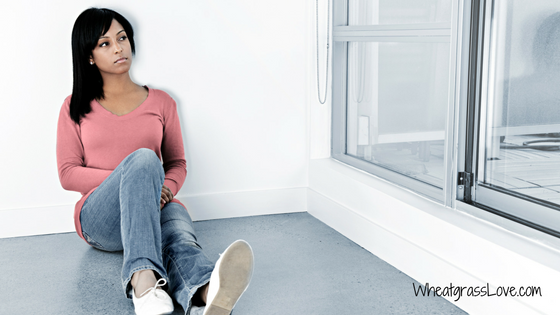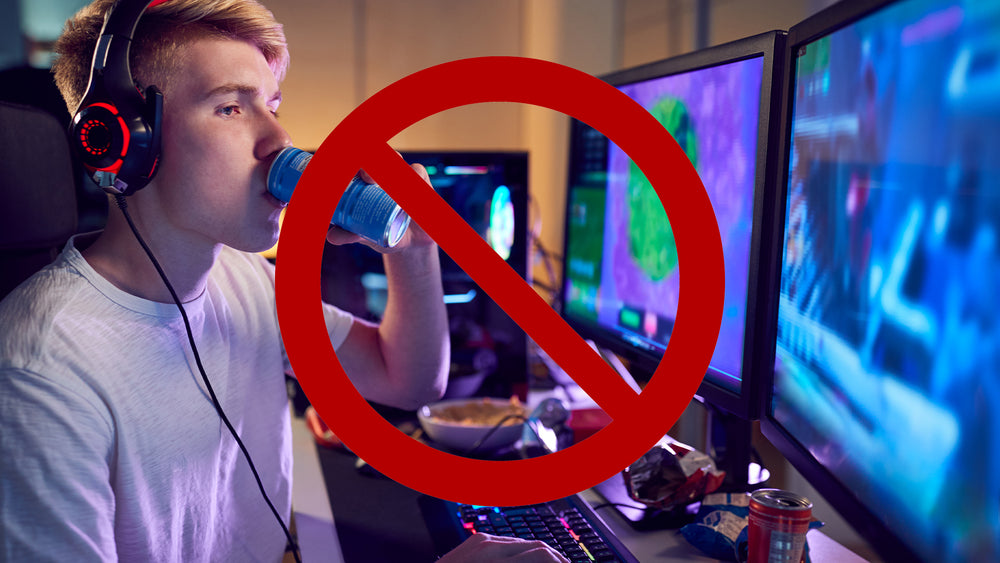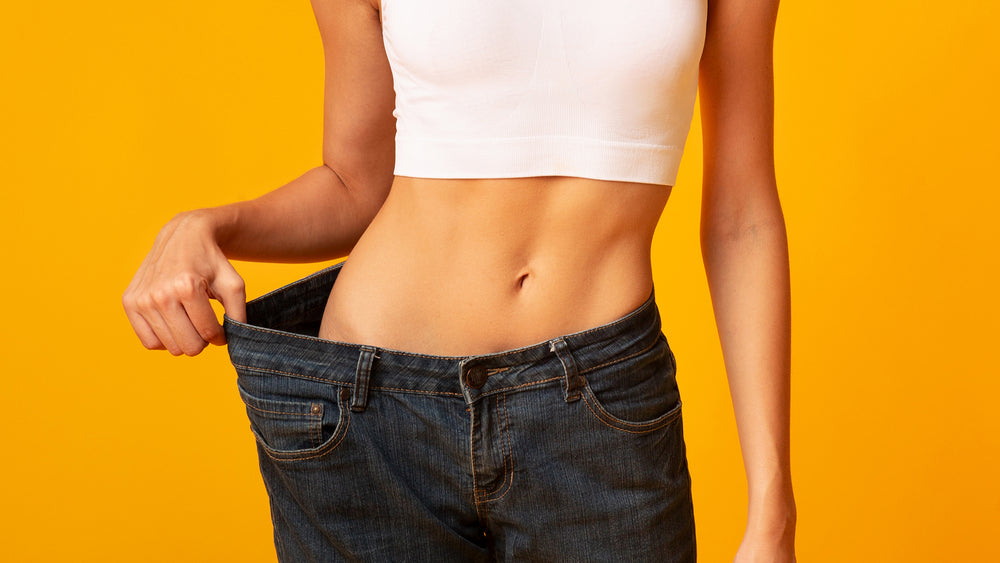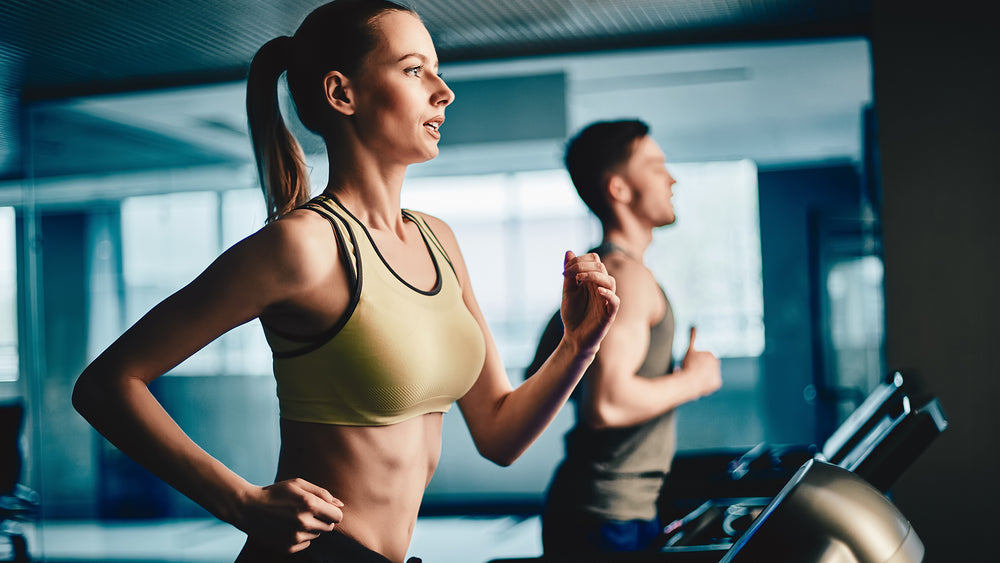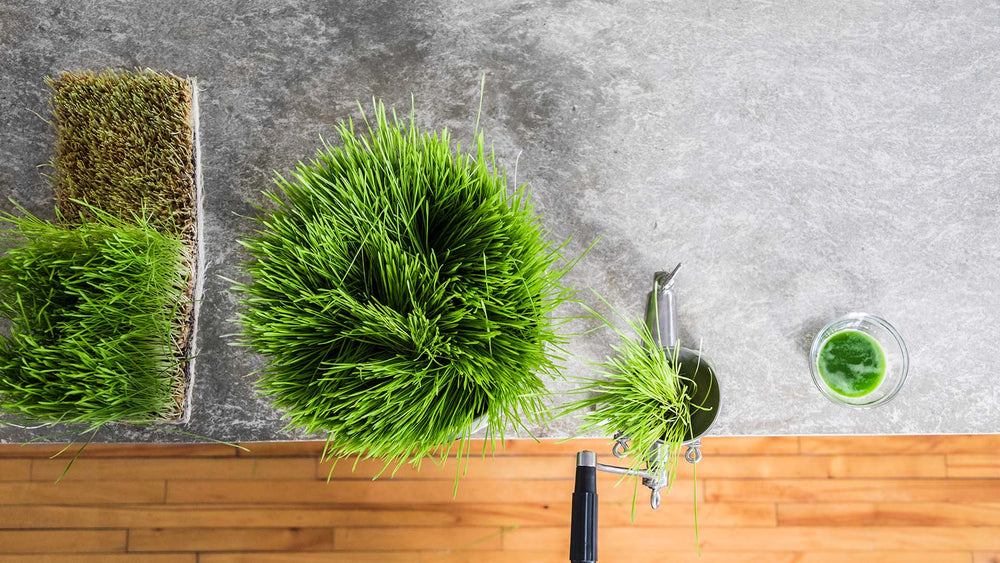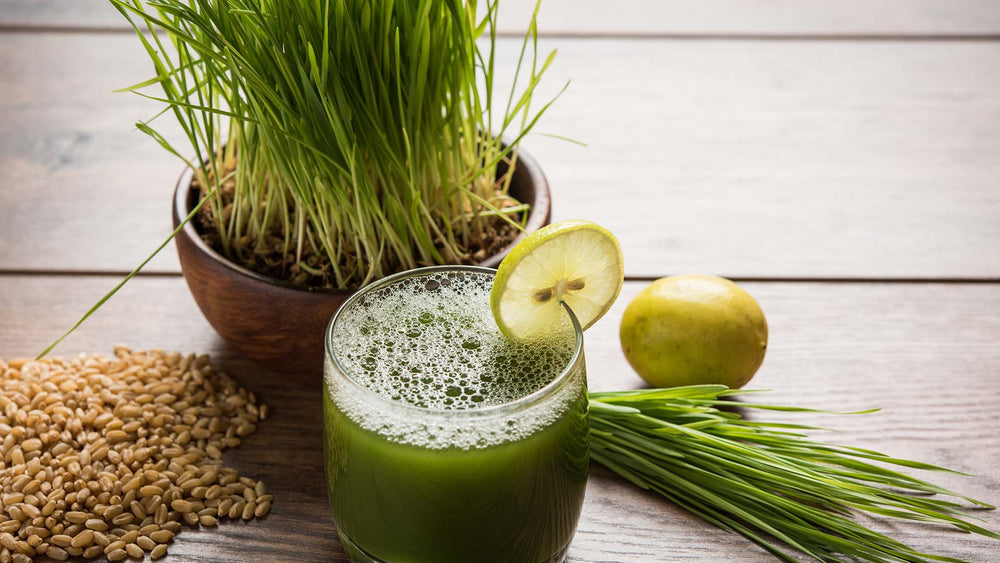The link between gut bacteria and depression is becoming more evident. New studies and articles in medical journals underscore the importance of maintaining healthy bacteria in the stomach to reduce the chance of clinical depression.
Bad bacteria in one part of the body can affect the rest of our body in negative, and sometime dangerous, ways. Poor dental hygiene results in bacteria in and around the gums, causing teeth to decay and increasing the chance of infection. An infection due to a tooth abscess may travel directly to the brain, causing death if left untreated. Brushing, flossing and visits to the dentist can prevent periodontal disease and tooth loss, but you should be aware of what you eat and how it affects the bacteria in your mouth and elsewhere in your body. The same goes for gut bacteria. What you eat helps determine not only your weight and physical health, but how your brain functions. When you eat a poor diet and don't take care of your body with exercise, proper sleep and other healthy habits, bad bacteria and depression take over.
Stress, Gut Bacteria and Depression
Researchers at McMaster University in Hamilton Ontario studied three groups of mice to test how gut bacteria affected them under stressful conditions. Baby mice were separated from their mother for three hours each day. Scientists put one group of mice in a sterile environment and exposed a second group to gut bacteria and other germs. A third, bacteria-free group remained with their mothers. The mice subjected to bacteria became anxious and depressed. This was probably due to an increase in the stress hormone corticosterone. The germ-free mice separated from their mothers and the control group showed no signs of depression or anxiety.
Buy Happy Girl Mood Enhancing Supplement to Feel Better Naturally
HAPPY GIRL helps you to feel calmer, more energetic, and promotes an overall feeling of well-being.
The scientists concluded that stress experienced shortly after birth, when combined with environmental and gut bacteria, cause depression in later life. The bacteria-free mice separated from their mothers showed heightened levels of corticosterone, but no sign of depression.
As of 2015, there haven't been any conclusive studies on the relationship between bacteria and stress at a young age and depression in humans. Many studies have shown intestinal bacteria contributes to depression and anxiety disorder in adults.
Buy Happy Girl Mood Enhancing Supplement to Feel Better Naturally
HAPPY GIRL helps you to feel calmer, more energetic, and promotes an overall feeling of well-being.
Acid and Alkaline pH Balance, Bacteria and Depression
A study conducted at the University of Iowa tracked changes in pH levels in mice and humans. Altering MRIs to measure pH activity in the brain instead of blood oxygenation patterns, the researchers were able to detect how acidic pH levels changed the brain. Research on mice showed an increase in brain activity raised acidity in their brains. Human subjects viewed a flickering checkerboard created to boost activity in the vision region of the brain. Scientists discovered brain acidity increased as the brain became more active. Higher levels of acid in the brain are linked with anxiety and depression.
Controlling acidity in the body reduces the chance you'll develop anxiety or depression. You can do this by changing your diet. Avoid fast-food, which is loaded with acidic fat, grease and sugar. If you eat out in causal or even high-end restaurants, ask about the ingredients used in your favorite dishes. Some entrees that sound healthy in the menu description may be prepared with rich creams and excess salt or sugar. Prepare more meals at home – you'll know exactly what's in your food! Eat fresh fruits and vegetables, high-alkaline spices including ginger, cinnamon and turmeric, and snack on almonds, chestnuts and other alkalizing proteins.
The ideal pH balance for the human body is slightly alkaline at 7.30 to 7.45. To maintain a healthy pH, you need to consume a mix of alkaline, neutral and acidic foods. You don't need to eliminate all acidic foods. Some acidic foods, including blueberries, oatmeal and lentils, are necessary for better gut bacteria and overall well-being. Be aware of your diet, and eat a combination of alkaline, and “good” acidic” foods. Avoid highly acidic artificial sweeteners, tobacco, hard alcohol, beer and coffee.
How Your Diet Influences Gut Bacteria and Depression
Bacteria in the human body, especially gut microbes, have been the focus of many studies in recent years. The research usually concerns Crohn's disease, Irritable Bowel Syndrome (IBS) or other digestive disorders. You've probably noticed a connection between your emotions and stomach problems. You'll get a sharp pain in the “pit of your stomach” when you get fired from a job, find an eviction notice on your door, or face another serious dilemma. Individuals with a propensity to worry all the time sometimes develop ulcers (or make their existing ulcers worse). A study cited in the November/December 2003 issue of Psychosomatic Medicine found a connection between excessive worrying and peptic ulcers.
When you eliminate bad gut microbes and replace them with healthy bacteria, it makes your brain work better, not just your stomach.
You need healthy stomach bacteria to manufacture GABA, a neurochemical also created by the brain. Dopamine and serotonin, two more crucial neurochemicals produced in the colon, require good gut bacteria to flourish. Like GABA, calming serotonin and energy-sparking dopamine are also produced by the brain.
When your gut bacteria are out of whack, it may affect how your brain works. Your stomach bacteria may send electrochemical messages to the brain via the vagus nerve (the 10th cranial nerve), according to some researchers.
What you eat changes the makeup of your gut bacteria, improving both your physical and mental health. Stick to unprocessed foods, with an emphasis on fresh vegetables, salmon and other fish rich in Omega 3 fatty acids. Eggs and pasture-raised meat provide many of the vitamins and minerals necessary to keep gut bacteria healthy. Some researchers discourage all grains, even whole grains, in a gut-friendly diet, but this isn't etched in stone. Eating a good diet with all the usual suspects – fruits, veggies, fish, lean meat, whole grains, nuts and seeds – should balance your gut bacteria and protect you against depression.
Buy Happy Girl Mood Enhancing Supplement to Feel Better Naturally
HAPPY GIRL helps you to feel calmer, more energetic, and promotes an overall feeling of well-being.
Foods for Healthier Gut Bacteria
All raw, organic and unprocessed foods are good for your health, but some of them help influence bacteria and depression by balancing intestinal microbes. Here are a few nutritious favorites:
Yogurt
Yogurt is a probiotic food containing live, healthy bacteria. Eating yogurt is one of the best ways to stop the connection between gut bacteria and depression. A study done on 25 healthy women at UCLA showed that subjects who ate yogurt twice a day reacted more calmly to photographs of different facial expressions than the subjects who didn't eat yogurt. This revealed a connection between improved gut bacteria and depression, anxiety and other brain functions.
Pre-mixed yogurt may sound like a healthy way to combat bad gut bacteria, but don't be fooled by brand-name yogurt in the supermarket. Most of them contain artificial sweeteners, colorings and flavorings. Aspartame, the most popular artificial sweetener used today, has been shown to cause anxiety, depression, headaches, dizziness, insomnia and memory loss. Regular use of this sweetener may worsen diabetes, chronic fatigue syndrome and other diseases. Instead of eating flavored yogurt, buy plain yogurt with active cultures and mix it with sliced peaches, apples, blueberries, strawberries or other fresh fruit. Garnish with flaxseed, sesame seeds or granola.
Cheese
All cheeses are not created equal when it comes to gut bacteria and depression. The processed American cheese on fast-food burgers is filled with fat and sodium, and can harm much more than your stomach. Cottage cheese, Gouda, parmesan and other soft, probiotic cheeses are good for your gut and your mental health. They boost beneficial intestinal flora, maintain your weight and prevent inflammation. Roquefort, a soft French cheese made from ewe's milk, has been shown to have anti-inflammatory properties that may prevent cardiovascular disease.
Prebiotic Foods
Prebiotic foods contain high amounts of dietary fiber necessary for gut health. Prebiotics are types of fiber that pass through your gastrointestinal tract undigested and spur the growth of good intestinal flora. Prebiotic foods include fun to eat pistachios. A 2012 study in the FASEB Journal showed that pistachios are an “alternative means of modifying gut microbiota.” Choose plain, in-shell pistachios to avoid overeating (cracking the shells slows you down) and sugars or flavorings in processed nuts.
Beans, including soybeans, chickpeas, lentils and kidney beans, are prebiotics that regulate the bacteria in your gut and give you energy courtesy of B vitamins. Loaded with fiber and protein, they dull your appetite by making you feel full. Beans deliver short chain fatty acids (SCFA) to help strengthen your intestines and absorb nutrients.
Fruits and Vegetables
A study published in the September 2009 Journal of Nutrition showed that cruciferous vegetables (cabbage, kale ,broccoli, etc.) promoted balanced gut bacteria when used in place of a fruit and vegetable-free basal diet. Although all fruits and vegetables contribute to better health, cruciferous vegetables contain glucosinolates, sulfur-packed metabolites that help reduce the chance of colon, breast and bladder cancer. Anthocyanins, the pigments that give blueberries their color, combine with antioxidants and Vitamin K to balance gut microbes, stop inflammation, and boost memory. Bananas balance microbes called phyla , maintaining good bacteria in the stomach and preventing inflammation. The potassium and magnesium in bananas boost brain power and memory, and may even reduce the effects of Parkinson's disease.
High-Fiber Nuts, Seeds and Grains
An article in the BMJ (British Medical Journal) concluded that fiber may be effective for balancing intestinal flora. Snack on cashews, almonds, sunflower seeds and whole grains to get rid of bad intestinal bacteria and strengthen the gut-brain connection. Pistachios (a prebiotic mentioned above) are another fiber-rich snack.
Wheatgrass – the Superfood with pH Balancing Magnesium
Wheatgrass may be the closest thing we have to a perfect food. It has hundreds of nutrients to balance your pH and gut bacteria, resulting in a happier mood, more energy and better mental function. Wheatgrass is mostly chlorophyll, the green pigment found in algae and plants. It has a molecular structure similar to hemoglobin, with magnesium as its main component instead of heme. Magnesium, along with calcium and potassium, is an alkalizing mineral, and helps you attain an ideal pH balance. It helps your brain, nerves and muscles function properly. Without enough magnesium in your diet, you're unable to concentrate for long and may experience insomnia or restless sleep. You may feel confused, anxious and depressed much of the time.
Along with a healthy diet, wheatgrass supplements ensure better gut bacteria to prevent depression. The magnesium in wheatgrass not only balances pH, but it also helps relieve anxiety. Fear and depression work together to make you miserable, and magnesium helps relax you to let you focus better.
A single wheatgrass pill contains all B-complex vitamins for more energy and better cognitive function. Chlorophyll contains Vitamins A, E, C, and K, essential amino acids, (which you can't get from food), potassium, zinc, manganese, iron and other alkaline minerals. Unlike other “all-in-one” health supplements, wheatgrass also provides hundreds of enzymes to aid digestion and eliminate toxins.
Avoid the temptation to take Prozac, Lexapro or other prescription medication at the first sign of depression. Make lifestyle changes instead. Adjust your diet to include more raw foods, fruits, vegetables and vitamin packed beans, fish and lean meat. Stop eating fast food and grabbing snacks at the 7-11. Bring sunflower seeds, raisins and fresh fruit with you for a nourishing between meal pick-me-up. Exercise and spend time outdoors everyday to get ample sunshine and fresh air.
Buy Happy Girl Mood Enhancing Supplement to Feel Better Naturally
HAPPY GIRL helps you to feel calmer, more energetic, and promotes an overall feeling of well-being.
The Nutrients in Zeal O2, REVV and HappyGirl Balance Gut Bacteria and Fight Depression
HappyGirl Natural Depression Remedy and Mood Enhancer has all the pH balancing minerals of wheatgrass and extra B-complex vitamins for better mood and more energy. The nutrients in wheatgrass keep you calmer and more focused during stressful times. We've included a proprietary blend of mood-boosting herbs in HappyGirl. Cayenne pepper, ginger, ginseng, green tea extract, white willow bark and goldenseal are just a few of the herbs in our lab-tested formula. These herbs fight inflammation and neutralize toxins to eliminate the “brain fog” that keeps you depressed and anxious. Green tea and ginger are known to reduce colon cancer risk and fight bad gut bacteria. Order HappyGirl here: http://wheatgrasslove.com/products/happygirl-buy-now
For a quick energy boost, take REVV chocolate mint wafers instead of a highly acidic energy drink. Energy drinks have a high pH level of 2.5-3.5, which raises your body pH and erodes tooth enamel. REVV chocolate mint wafers taste good, and balance your pH and gut bacteria with the B-vitamins and magnesium in chlorophyll. We've added periwinkle herb to REVV to increase blood flow to the brain and L-Taurine to support GABA and other neurotransmitters. Stay alert and energetic with REVV! Buy it here: http://wheatgrasslove.com/products/REVV-buy-now
Zeal O2 Natural Weight Loss Supplement has all the power of wheatgrass plus citrus auranthium (bitter orange) to ramp up your metabolism and suppress appetite. Its herbal blend includes green tea extract (for mental clarity and calmness), cayenne pepper ( to boost mood) and ginkgo biloba (to balance gut bacteria). Order Zeal O2 here: http://wheatgrasslove.com/products/natural-weight-loss-supplement
Keep your stomach-brain connection strong with Zeal O2, REVV and HappyGirl. Wheatgrass, along with green tea extract, gingko biloba and other herbs, work together to reduce the conditions that cause bad gut bacteria and depression.

